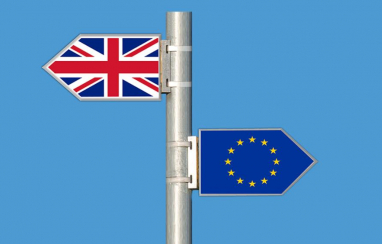- adidas velcro sneaker for kids shoes boys size 1
- Air Jordan 1 Outlet Store online
- Пилинг - диски с bha и pha - кислотами needly daily toner pad 1шт — цена 50 грн в каталоге Скрабы для лица ✓ Купить товары для красоты и здоровья по доступной цене на Шафе , Украина #112548157
- Air jordan 6 rings bred black university red white yellow strike playoffs big kids - 001 Release Date - air jordan 1 retro first class flight white dynamic yellow black 2021 DN4904 - SBD
- nike lebron x nike pink green hair women 2017 DM7597 - 100 Release Details - StclaircomoShops - scarpe nike air max silver metallic
- Air Jordan 1 Mid Bred 554724 074 2020 Release Date 4
- 554725 113 air jordan 1 mid white black 2020 for sale
- Miles Morales Shameik Moore Air Jordan 1 Spider Verse
- kids air jordan
- Nike Blazer Mid 77 Catechu DC9265 101 Release Date
- Home
- News and analysis
- Info hubs
- Events
- Video
- Case Studies
- About us
- Magazine
- Advertising
Produced for the industry by the Association for Consultancy and Engineering
Comment
Collaboration to trump competition to meet the Brexit challenge

In voting for Brexit, the UK chose to go it alone and to compete and to do better. It’s slightly ironic therefore that in order to do this successfully we will need to collaborate more than ever, says Nick Roberts.
It’s estimated that an average adult will make somewhere in the region of 35,000 conscious decisions every day. Granted, many of these will be fairly trivial, but a significant number of them will require us to make a choice of whether to compete or collaborate.
Generally speaking competing means pursuing self-interest before all else. The gains can be more significant, but the losses too. Competition runs to the core of what businesses and business leaders, and even individuals, are expected to do. On the other hand, collaborating means that you have to share your competitive advantage and work harder to make sure the relationships with your partners run smoothly. Risk and reward for the individual companies is normally smaller but in the long term you will probably achieve a greater good. As we face increasingly complex challenges and an evolving business landscape the lines between competing and collaborating have to move closer together so we can have the best of both worlds.
More from Atkins
The people of the UK have recently been asked one of the most important questions in recent history. Do we want to forge our own way or do we want to be part of something bigger. We chose to go it alone. In other words we want to compete and to do better. It’s therefore slightly ironic that in order to do this successfully we will need to collaborate more than ever.
Focusing firstly on Brexit, it is a mind-blowingly complex task to unpick countless EU rules, regulations, standards, processes, laws and deals that span everything in our daily lives for more than 40 years. Purely from a design, engineering, science and infrastructure perspective, we know that leaving the EU could disrupt or pose serious threats to skills, research, investment and procurement, as well as the standards by which we operate and do business.
As much as we all as individuals and representatives of our businesses will have views on Brexit it’s vital that our sector has a clear voice. We need to agree amongst ourselves what the priorities are – both in terms of opportunities to flourish and the biggest risks. We have to come up with both the questions and the answers so that the government can have the best chance of securing the best deal for the nation. Will we all get everything we want, probably not, but on the whole I’d like to think that we can achieve enough to give us a stable footing from which to operate and grow.
I could put forward a similar case around the UK’s future infrastructure needs. The scale of some of the challenges means that there’s no longer a clear line of differentiation between competitors and partners. Of course we need to let market forces continue to challenge and drive the likes of innovation and efficiency, but it will be the might of our collective efforts that will help make the decisions which are in the best interests of the country, and more importantly its people.
Again many of the people who will be making the key decisions around infrastructure are not the domain experts. So it’s important that we, as an industry, make a clear, informed case to enable the best possible outcome. This means working together on the big picture, but retaining the flexibility to realise the positive benefits of competition when it comes to the detail.
The Institution of Civil Engineers (ICE) has established a Brexit leadership group to look at the fundamental issues facing the sector and provide evidence-based briefings to negotiators on behalf of the industry. The group will be reaching out to the industry for views. ICE’s president Sir John Armitt is also leading a group of environmental, industry, business and academic organisations to produce a national needs assessment. It will provide an independent, evidence-based take on our infrastructure needs to 2050 and will be published and shared with the National Infrastructure Commission in October.
Atkins is proud to be contributing to both collaborations. Collective knowledge and expertise is powerful - and even more powerful when shared.
Although not everybody voted for the path we find ourselves on, we have an opportunity to unite, innovate and find new ways of doing business, as well as solving the many challenges ahead.
Nick Roberts is Atkins chief executive officer, UK & Europe and a member of ICE’s Brexit leadership group.





